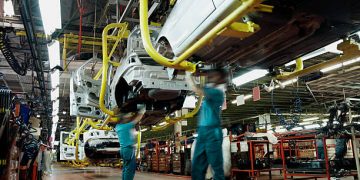The U.S. administration has announced plans to ease certain tariffs on imported vehicle parts used in domestic manufacturing, aiming to support American carmakers and encourage continued investment in U.S. production facilities.
According to Commerce Secretary Howard Lutnick, the proposed approach is intended to strike a balance between maintaining tariff policies and offering flexibility for manufacturers that are committed to building vehicles in the United States.
“This agreement rewards companies that manufacture domestically while providing transitional support to those investing further in U.S. operations,” Lutnick said in a statement shared by the White House.
Under the plan, automakers that currently pay tariffs on imported parts would be eligible for partial reimbursement, calculated based on the volume of their U.S.-based car production. Vehicles manufactured outside of the United States would continue to face import duties but could be exempt from additional levies such as those on metals.
The plan is expected to be formally announced later this week during a visit by the president to Michigan, a key state for the automotive sector and home to numerous manufacturers and suppliers.
Automakers, including General Motors and Ford, have expressed support for the proposed adjustments. GM CEO Mary Barra stated the policy shift could help strengthen competitiveness and increase domestic investment. Ford CEO Jim Farley noted the changes would help mitigate tariff-related impacts on manufacturers, suppliers, and consumers alike.
Industry groups recently cautioned that steep tariffs on imported car parts could have a ripple effect throughout the automotive supply chain, potentially raising vehicle prices and complicating repairs. These concerns were outlined in a letter sent to key administration officials, signed by representatives of major global and domestic carmakers.
The administration’s proposed changes signal a willingness to adopt a more flexible approach to tariff implementation, especially in sectors with significant domestic employment and investment.
#SupplyChainNews #AutomotiveIndustry #TariffPolicy #ManufacturingUpdate #EconomicStrategy















